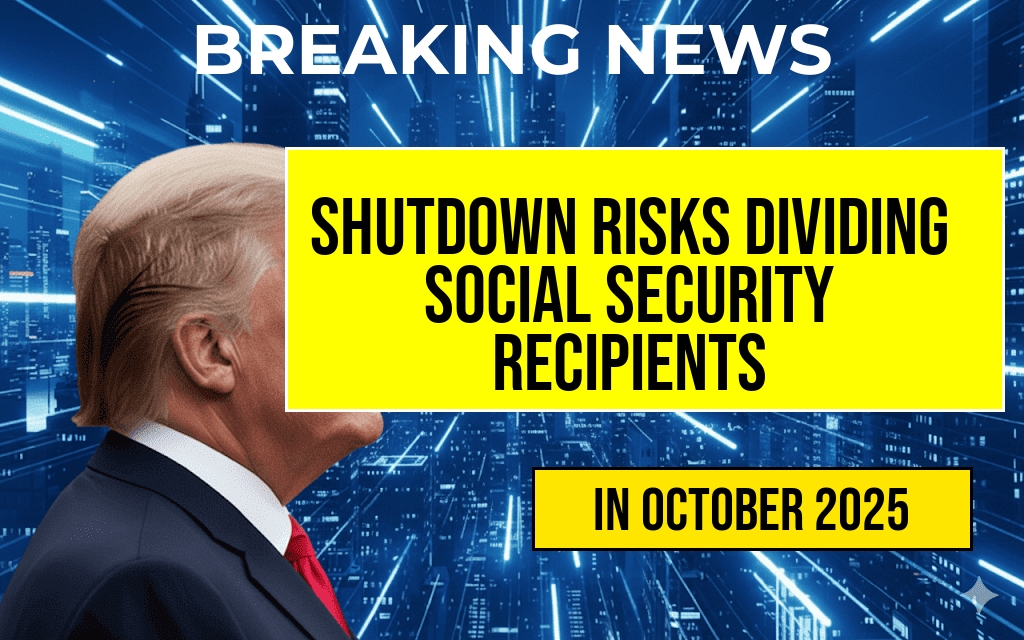The looming threat of a government shutdown has cast a shadow over the future of Social Security administration, raising concerns about a potential two-tier system for beneficiaries. While current recipients are likely to continue receiving their payments uninterrupted, new applicants may face a complete halt in processing, creating disparities that could impact millions. This split hinges on federal funding allocations and the administrative priorities set during a shutdown scenario. Experts warn that such a division could undermine the program’s integrity, leaving future seniors and disabled individuals without aid while those already enrolled remain protected. The unfolding situation underscores broader debates about the stability of social safety net programs amid political impasses, prompting calls for legislative clarity and emergency measures to prevent the most vulnerable from falling through the cracks.
How a Government Shutdown Could Affect Social Security
Current Beneficiaries Likely to Remain Protected
Under existing policies, Social Security benefits are considered mandatory spending, which means they are generally exempt from the kinds of funding lapses that often accompany government shutdowns. As a result, current beneficiaries—including retirees, disabled individuals, and survivors—are expected to continue receiving their payments on schedule, even if federal agencies face a shutdown. This exemption is rooted in longstanding congressional practice aimed at protecting the most vulnerable from disruptions.
New Applicants Facing a Complete Halt
By contrast, the processing of new Social Security claims, including retirement, disability, and survivor benefits, relies heavily on agency operations that are funded through discretionary appropriations. If Congress fails to pass a continuing resolution or appropriations bill, these administrative functions could come to a halt. Without operational funding, the Social Security Administration (SSA) might be unable to process new applications, leading to a backlog that could stretch for weeks or months. Historically, while benefits for existing recipients have continued, new claims processing has been significantly delayed during shutdowns, and the current political climate heightens these risks.
Implications for Future Beneficiaries and the Social Safety Net
Potential for Systemic Inequities
| Aspect | Existing Beneficiaries | New Applicants |
|---|---|---|
| Benefit Payments | Protected and ongoing | Likely halted or delayed |
| Claims Processing | Operational with minimal disruption | Potentially suspended or significantly slowed |
| Long-term Impact | Continuity maintained | Increased uncertainty for applicants |
This bifurcation could establish a two-tier system within Social Security, where those already enrolled are shielded from immediate harm, but prospective beneficiaries face barriers that could prevent timely access to crucial support. Such disparities might deepen existing inequalities, especially for vulnerable populations relying on timely benefits for daily survival.
Legislative and Administrative Responses
Congress can mitigate these risks through emergency funding measures or temporary extensions that ensure continued operation of the SSA’s processing functions. Some lawmakers have proposed continuing resolutions designed to fund government agencies temporarily, but political gridlock has historically complicated these efforts. The SSA has also developed contingency plans to prioritize processing for the most urgent cases, such as new applicants with imminent needs, but these measures are often insufficient to prevent delays entirely.
Expert Perspectives and Broader Context
Potential Economic and Social Consequences
Delays in processing new Social Security claims could have ripple effects across the economy, as individuals awaiting benefits may reduce spending or delay essential expenses. For many, Social Security constitutes a primary income source, and interruption could lead to financial hardship, increased reliance on emergency assistance, or even homelessness in extreme cases. Economists warn that such disruptions could also undermine public confidence in the stability of social safety nets, complicating broader efforts to address aging populations and economic inequality.
Policy Debates and Future Outlook
The current scenario spotlights the need for comprehensive reform and clearer legislative language to shield Social Security from political disruptions. Advocates argue that making benefits protection statutory rather than subject to funding disputes could prevent future disparities. Meanwhile, some policymakers suggest establishing a dedicated fund that insulates Social Security from government shutdowns entirely, ensuring equitable access for both current and future beneficiaries.
Additional Resources
- Social Security Administration: Retirement Benefits
- Legislative Proposals for Government Funding
- U.S. Social Welfare Policy Overview
Frequently Asked Questions
What is the main impact of a government shutdown on Social Security recipients?
Existing Social Security beneficiaries will continue to receive their payments without interruption, ensuring their benefits remain protected during a government shutdown.
How does a government shutdown affect new Social Security applicants?
During a shutdown, new applicants for Social Security will face a complete halt in processing claims, leading to delays in receiving benefits.
Will current Social Security recipients be affected by a government shutdown?
No, existing beneficiaries are typically protected and will continue to receive their benefits as usual, even if the government is shut down.
What are the potential consequences for those applying for Social Security for the first time?
First-time applicants may experience significant delays in claim processing and benefit disbursement, which can impact their financial stability.
Is there any way for new Social Security applicants to access benefits during a government shutdown?
Generally, benefit payments to new applicants are halted during a shutdown, and there are limited options for access until normal operations resume.






